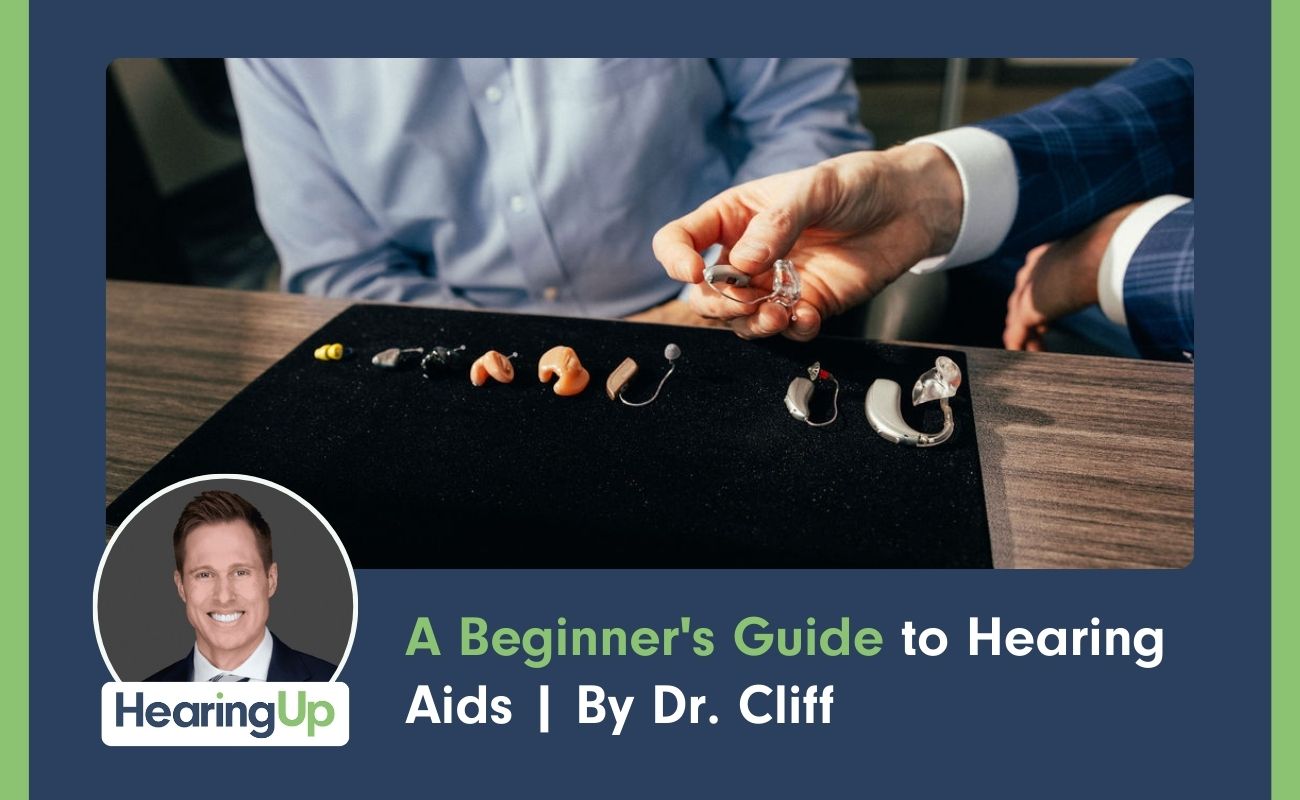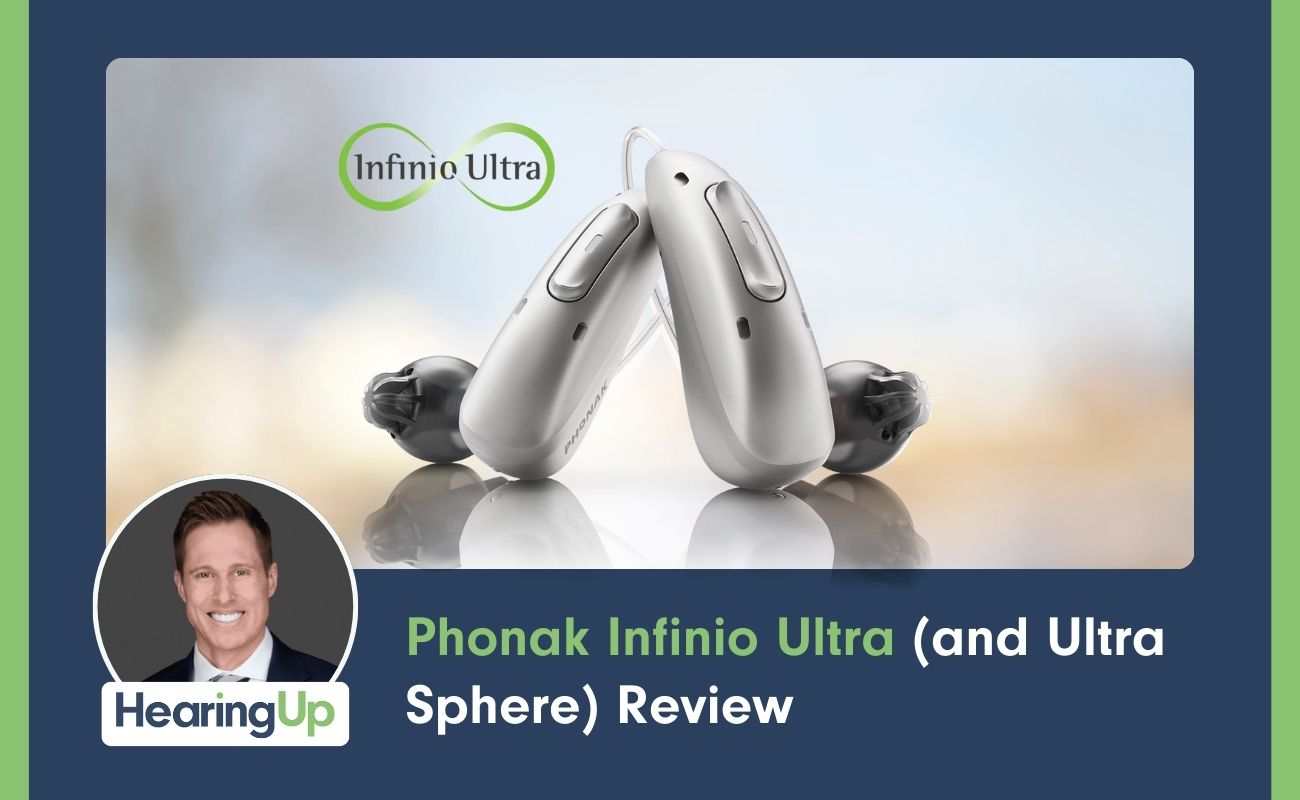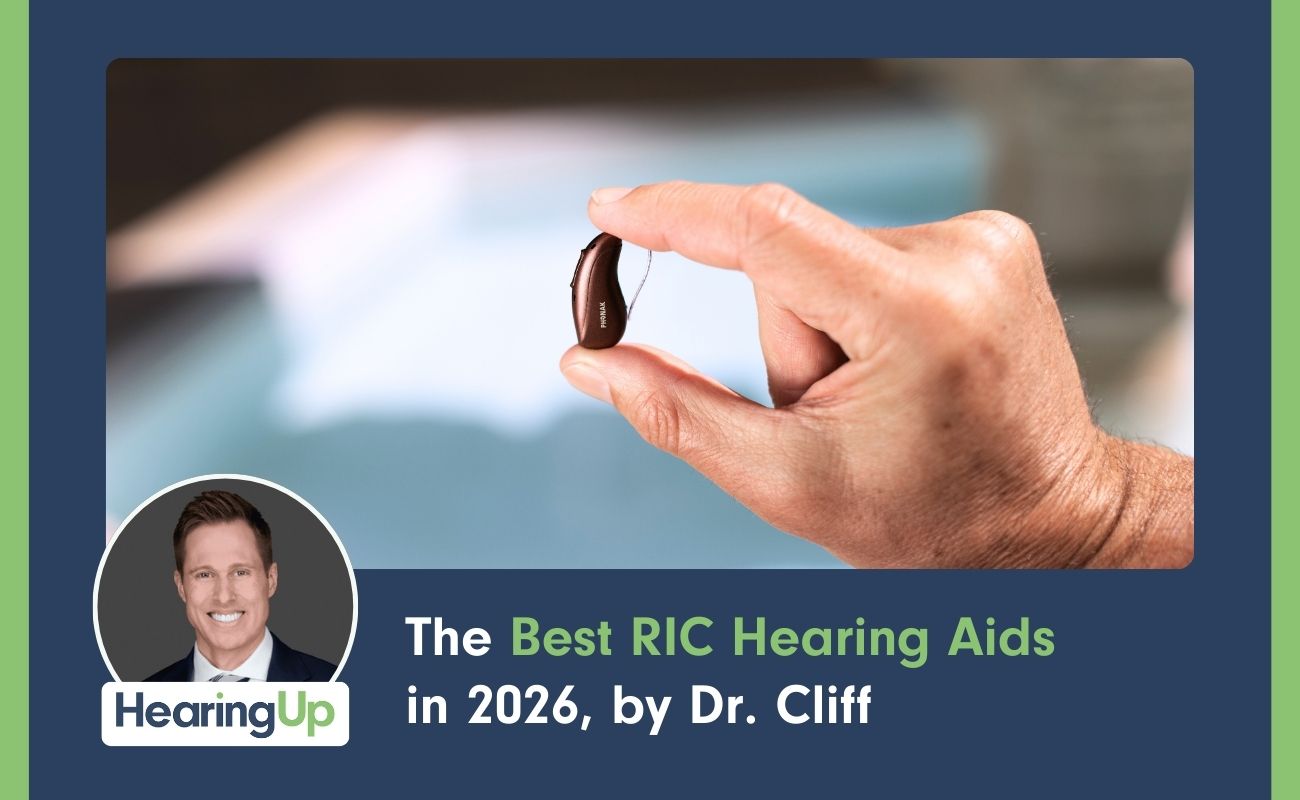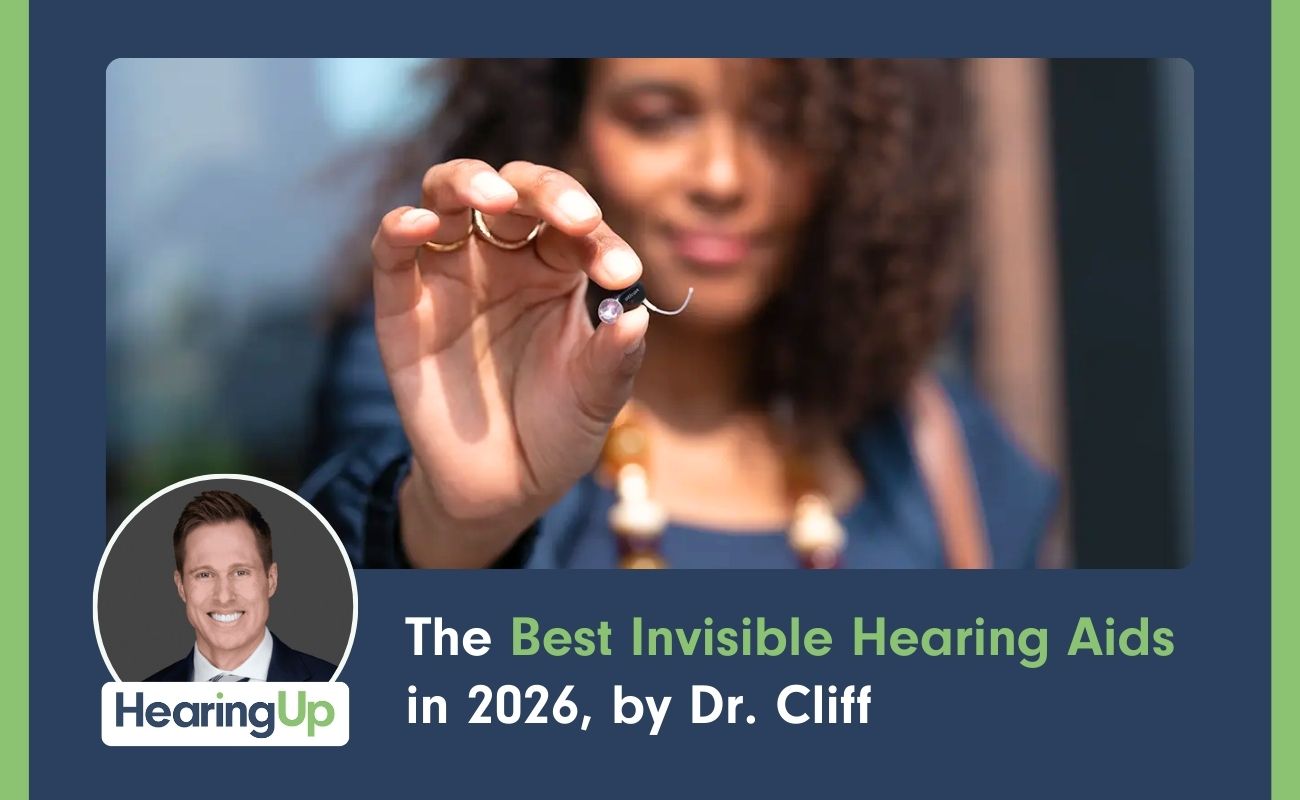Dr. Cliff Olson, Audiologist and founder at Applied Hearing Solutions in Phoenix Arizona, discusses the importance of focusing on more than just hearing aids to ensure your social and emotional well being is taken into account when treating your hearing care professional treats your hearing loss.
Hearing loss can profoundly affect our lives, touching every aspect of our daily experiences. We often underestimate its impact, but the consequences can be far-reaching and deeply personal.
From self-confidence to relationships, the effects of hearing loss extend beyond just missing out on sounds. It can lead to social withdrawal, mental exhaustion, and even financial implications. Understanding these impacts is crucial for addressing hearing loss effectively and improving overall quality of life.
Hearing loss can significantly affect many aspects of life. We often underestimate its far-reaching consequences. Let's examine five key areas where untreated hearing loss can cause problems.
Hearing loss can erode self-confidence. When conversations become challenging, individuals may hesitate to engage, fearing misunderstandings or embarrassment. This reluctance can lead to a cycle of reduced social interaction and further loss of confidence.
Hearing difficulties can put significant stress on relationships. Misunderstandings become more frequent, and communication may feel like a chore. Loved ones might grow frustrated, leading to less interaction and potential relationship breakdowns.
Straining to hear is exhausting. People with hearing loss often expend considerable mental energy trying to piece together conversations. This constant effort can lead to both mental and physical fatigue, impacting overall well-being.
As communication becomes more difficult, many withdraw from social situations. This isolation can lead to feelings of loneliness and potentially contribute to depression. The ease of staying home with subtitled media can further reinforce this withdrawal.
Hearing loss can significantly impact earning potential. Studies show that individuals with untreated hearing impairment may earn up to $30,000 less annually than their peers with normal hearing. This gap highlights the importance of addressing hearing issues for career success.
Phonak stands at the forefront of hearing aid technology. Their devices go beyond simply amplifying sound, focusing on improving overall quality of life for those with hearing loss. We've seen firsthand how Phonak's commitment to innovation has led to significant advancements in hearing aid functionality and user experience.
Phonak's speech enhancement features are game-changers for many users. Their Speech Enhancer technology provides additional amplification for soft-spoken individuals, making it easier to understand children and people with quieter voices. This targeted approach helps users engage more confidently in conversations across various settings.
The integration of artificial intelligence in Phonak's Audéo Paradise hearing aids marks a new era in auditory assistance. The Deep Sonic chip employs advanced AI algorithms to separate speech from background noise effectively. This smart technology allows wearers to focus on what they want to hear, even in challenging acoustic environments.
By prioritizing both hearing improvement and user well-being, Phonak's technologies aim to address the multifaceted impacts of hearing loss on individuals' lives.
We recommend a comprehensive strategy for addressing social and emotional well-being in hearing loss treatment. This includes identifying the client's needs through questionnaires, involving family members in the rehabilitation process, and creating personalized management plans. It's crucial to set goals that focus on social and emotional aspects, not just auditory improvement. Measuring treatment outcomes based on these goals ensures a holistic approach to care.
Involving family members in the hearing care journey is essential. This approach recognizes that hearing loss affects not only the individual but also their loved ones. By including family in the process, we create a support system that enhances the effectiveness of treatment and improves overall outcomes.
Measuring the success of hearing loss treatment goes beyond audiometric tests. We need to assess how well the interventions improve the patient's quality of life, social interactions, and emotional state. This broader evaluation helps us refine our approach and ensure that the treatment is truly beneficial.
There's a strong connection between hearing ability and social engagement. Better hearing often leads to improved self-confidence, stronger relationships, and more active participation in social activities. By addressing hearing loss, we can help patients reconnect with their social world and reduce feelings of isolation.
Audiologists need to develop strong counseling skills to effectively address the emotional aspects of hearing loss. This includes active listening, encouraging open discussions about experiences and emotions, and maintaining a supportive, non-judgmental approach when discussing mental health concerns related to hearing loss.
The role of hearing care professionals extends far beyond fitting hearing aids. We must focus on prescribing social activities, understanding how treatment impacts various aspects of a patient's life, and addressing overall social and emotional well-being. This comprehensive approach ensures that hearing loss treatment positively affects all areas of a patient's life, from personal relationships to professional opportunities.
Hearing loss can significantly affect our lives in various ways. We need to address key areas where it can create challenges. Fortunately, treating hearing loss can mitigate these issues. Modern hearing aids offer advanced features to improve speech comprehension in various environments.
A proper hearing care should focus on both technological solutions and overall quality of life improvements. This approach can boost confidence, enhance relationships, reduce stress, and improve work prospects.
We encourage those with hearing loss to seek treatment. It's not just about better hearing - it's about reclaiming full participation in life's experiences.
If you feel like hearing loss is ruining your life, you're definitely not alone.
Hey guys, Cliff Olson, Doctor of audiology and founder of Applied Hearing Solutions in Phoenix, Arizona. And in this video I'm talking about the five reasons why hearing loss could be negatively impacting your life, and more importantly, what you can do about it.
I often talk about the technical aspects of hearing aid technology and the importance of optimal communication through hearing treatment on my channel, but one thing that I rarely talk about is how hearing loss can negatively impact your social and emotional wellbeing.
Let's face it, hearing loss can negatively impact virtually every aspect of your life. And for some people, this impact can be mild, but for others, this impact can be severe either way. Life can be tough even if you do not have hearing loss, but if you do have hearing loss, it makes it that much more difficult.
That's why I wanna discuss the five ways that hearing loss can negatively impact your life and what you can do about it.
But before I do, do a huge favor, click the like button really helps out the channel, and if you are not yet subscribed to the channel with notifications turned on, go ahead and do that as well. And a huge shout out to Phonak for sponsoring today's video, but more on them in a little bit.
And let me know down in the comment section if you feel like hearing loss is ruining your life.
Okay, so let's go ahead and forget about the treatment side of hearing loss for a second, and let's talk about the five common ways that hearing loss can negatively impact your life.
First is your self-confidence. If you can not understand what someone is saying to you when you're engaged in a conversation with them, it can be really difficult to feel confident about your communication ability over time. If you experience continued difficulty communicating with other people, you eventually are going to get to a point where you're not going to want to engage in communication because you're worried what other people are thinking about you.
This will inevitably lead to the second reason why hearing loss will have a negative impact on your life, which is the impact that it will have on your relationships, whether these are relationships with friends, family members, or significant others, hearing loss can lead to miscommunication as well as communication avoidance, because trying to communicate with you if you have hearing loss becomes so difficult that they might as well just avoid communication at all. And once communication with others becomes limited or stops altogether, that is the beginning of the end of a relationship.
The third reason why hearing loss negatively impacts your life is the mental and physical exhaustion that it creates. If you have hearing loss, then you know how exhausting it can be to try to focus your attention on the person that's talking to you so you have a shot at understanding what they're saying. While this most definitely leads to mental exhaustion, if you do this long enough, it will even lead to physical exhaustion.
When this inevitably happens, it leads to the fourth reason why hearing loss can negatively impact your life, which is social withdrawal. When communication becomes a struggle, it becomes much easier to just sit home and watch Netflix because let's face it, it's much easier just to sit back in your recliner chair, crank up the volume of the TV and turn on closed captions. And even if you do miss something, you just hit the rewind button and watch it again. Unfortunately, when you start process of social isolation, it leads to higher rates of depression.
And the fifth way that hearing loss can negatively impact your life is lower earning potential at work. Now, if you're of working age, studies have shown that individuals with hearing loss have a significantly higher rate of unemployment than normal hearing individuals and individuals with hearing loss makes significantly less money than their normal hearing coworkers. Annual income for individuals with hearing loss is up to $30,000 less per year than individuals that do not have a hearing loss depending on your level of severity.
The good news is not only does treating your hearing loss almost completely remove this disparity in earned income, it also has a significantly positive impact on all these other negative areas that hearing loss can negatively impact your life.
That's why Phonak today's video sponsor not only focuses on developing the best hearing aid technology to help you hear your absolute best, but they also encourage hearing care professionals that fit their hearing aids to focus on your social and emotional wellbeing.
Whether you struggle to hear a child, a soft spoken female, or a friend or family member in a noisy restaurant, having hearing aid technology to remove this difficulty is critical. This includes using features like speech enhancer to provide additional amplification to soft talkers so you can better understand children and females better, or the artificial intelligence with PHonak's dedicated DEEPSONIC chip inside of their Phonak Audeo Sphere Infinio Hearing aids to separate speech from background noise.
Your hearing care professional can ensure that you hear both what you need to hear and what you want to hear. But to truly address the negative impact of hearing loss on your self-confidence, your relationships, your mental and physical status, your social engagement and your income, a person and family centered care approach by your hearing care professional is critical in the clinical recommendations for social emotional wellbeing and adult hearing loss.
Published in the International Journal of Audiology researchers recommended a five step plan, which included:
- Identifying a client's social and emotional wellbeing, which includes using questionnaires like the P HQ four or a a q dash a HL
- Including family members and audiologic rehabilitation throughout the testing and treatment process
- Incorporating social emotional needs and goals in an individualized management plan
- Measuring outcomes and effectiveness of treatment based on these goals relating identified hearing needs and goals to rehabilitation recommendations such as hearing aids, cochlear implants, or other hearing assisted technologies, as well as auditory and social skills training
- Using counseling skills and techniques to explore and monitor social emotional wellbeing by using active listening, encourage patient discussion about experiences and emotions, and maintaining an open and accepting approach to discussing social, emotional and mental health concerns.
As a hearing care professional myself, not only should I be focused on prescribing the best hearing aid technology, but I should also be focused on prescribing social activities so I can get a full understanding of how treatment is impacting your life. And I'm not just talking your ability to communicate, I'm talking about your overall social and emotional wellbeing.
If your hearing care professional does this well, not only should it result in a significant improvement in your ability to hear, but it should also lead to an improvement in your overall quality of life.
I mean, just think about how much more confident you would be if you actually heard what people were saying to you without having to ask them to repeat all the time, and the impact that this would have on your communication ability with family and friends, and the amount of reduction it would create in your stress levels, not to mention your employability and your ability to earn the income that you deserve.
Okay, so what am I really saying here? What I'm saying is that you need to treat your hearing loss if you have hearing loss. If you do not want hearing loss to negatively impact your life.
But you can't just focus on getting the best hearing aids. You have to make sure that your hearing care professional is focused on your overall wellbeing when treating your hearing loss. Otherwise, they're just slapping a hearing aid in your ear and wishing you good luck.
So as long as you find a hearing care professional who has the ability to get you great hearing aids and they're focused on your overall wellbeing, you'll be in really good shape.
If you feel like hearing loss is ruining your life, you're definitely not alone.
Hey guys, Cliff Olson, Doctor of audiology and founder of Applied Hearing Solutions in Phoenix, Arizona. And in this video I'm talking about the five reasons why hearing loss could be negatively impacting your life, and more importantly, what you can do about it.
I often talk about the technical aspects of hearing aid technology and the importance of optimal communication through hearing treatment on my channel, but one thing that I rarely talk about is how hearing loss can negatively impact your social and emotional wellbeing.
Let's face it, hearing loss can negatively impact virtually every aspect of your life. And for some people, this impact can be mild, but for others, this impact can be severe either way. Life can be tough even if you do not have hearing loss, but if you do have hearing loss, it makes it that much more difficult.
That's why I wanna discuss the five ways that hearing loss can negatively impact your life and what you can do about it.
But before I do, do a huge favor, click the like button really helps out the channel, and if you are not yet subscribed to the channel with notifications turned on, go ahead and do that as well. And a huge shout out to Phonak for sponsoring today's video, but more on them in a little bit.
And let me know down in the comment section if you feel like hearing loss is ruining your life.
Okay, so let's go ahead and forget about the treatment side of hearing loss for a second, and let's talk about the five common ways that hearing loss can negatively impact your life.
First is your self-confidence. If you can not understand what someone is saying to you when you're engaged in a conversation with them, it can be really difficult to feel confident about your communication ability over time. If you experience continued difficulty communicating with other people, you eventually are going to get to a point where you're not going to want to engage in communication because you're worried what other people are thinking about you.
This will inevitably lead to the second reason why hearing loss will have a negative impact on your life, which is the impact that it will have on your relationships, whether these are relationships with friends, family members, or significant others, hearing loss can lead to miscommunication as well as communication avoidance, because trying to communicate with you if you have hearing loss becomes so difficult that they might as well just avoid communication at all. And once communication with others becomes limited or stops altogether, that is the beginning of the end of a relationship.
The third reason why hearing loss negatively impacts your life is the mental and physical exhaustion that it creates. If you have hearing loss, then you know how exhausting it can be to try to focus your attention on the person that's talking to you so you have a shot at understanding what they're saying. While this most definitely leads to mental exhaustion, if you do this long enough, it will even lead to physical exhaustion.
When this inevitably happens, it leads to the fourth reason why hearing loss can negatively impact your life, which is social withdrawal. When communication becomes a struggle, it becomes much easier to just sit home and watch Netflix because let's face it, it's much easier just to sit back in your recliner chair, crank up the volume of the TV and turn on closed captions. And even if you do miss something, you just hit the rewind button and watch it again. Unfortunately, when you start process of social isolation, it leads to higher rates of depression.
And the fifth way that hearing loss can negatively impact your life is lower earning potential at work. Now, if you're of working age, studies have shown that individuals with hearing loss have a significantly higher rate of unemployment than normal hearing individuals and individuals with hearing loss makes significantly less money than their normal hearing coworkers. Annual income for individuals with hearing loss is up to $30,000 less per year than individuals that do not have a hearing loss depending on your level of severity.
The good news is not only does treating your hearing loss almost completely remove this disparity in earned income, it also has a significantly positive impact on all these other negative areas that hearing loss can negatively impact your life.
That's why Phonak today's video sponsor not only focuses on developing the best hearing aid technology to help you hear your absolute best, but they also encourage hearing care professionals that fit their hearing aids to focus on your social and emotional wellbeing.
Whether you struggle to hear a child, a soft spoken female, or a friend or family member in a noisy restaurant, having hearing aid technology to remove this difficulty is critical. This includes using features like speech enhancer to provide additional amplification to soft talkers so you can better understand children and females better, or the artificial intelligence with PHonak's dedicated DEEPSONIC chip inside of their Phonak Audeo Sphere Infinio Hearing aids to separate speech from background noise.
Your hearing care professional can ensure that you hear both what you need to hear and what you want to hear. But to truly address the negative impact of hearing loss on your self-confidence, your relationships, your mental and physical status, your social engagement and your income, a person and family centered care approach by your hearing care professional is critical in the clinical recommendations for social emotional wellbeing and adult hearing loss.
Published in the International Journal of Audiology researchers recommended a five step plan, which included:
- Identifying a client's social and emotional wellbeing, which includes using questionnaires like the P HQ four or a a q dash a HL
- Including family members and audiologic rehabilitation throughout the testing and treatment process
- Incorporating social emotional needs and goals in an individualized management plan
- Measuring outcomes and effectiveness of treatment based on these goals relating identified hearing needs and goals to rehabilitation recommendations such as hearing aids, cochlear implants, or other hearing assisted technologies, as well as auditory and social skills training
- Using counseling skills and techniques to explore and monitor social emotional wellbeing by using active listening, encourage patient discussion about experiences and emotions, and maintaining an open and accepting approach to discussing social, emotional and mental health concerns.
As a hearing care professional myself, not only should I be focused on prescribing the best hearing aid technology, but I should also be focused on prescribing social activities so I can get a full understanding of how treatment is impacting your life. And I'm not just talking your ability to communicate, I'm talking about your overall social and emotional wellbeing.
If your hearing care professional does this well, not only should it result in a significant improvement in your ability to hear, but it should also lead to an improvement in your overall quality of life.
I mean, just think about how much more confident you would be if you actually heard what people were saying to you without having to ask them to repeat all the time, and the impact that this would have on your communication ability with family and friends, and the amount of reduction it would create in your stress levels, not to mention your employability and your ability to earn the income that you deserve.
Okay, so what am I really saying here? What I'm saying is that you need to treat your hearing loss if you have hearing loss. If you do not want hearing loss to negatively impact your life.
But you can't just focus on getting the best hearing aids. You have to make sure that your hearing care professional is focused on your overall wellbeing when treating your hearing loss. Otherwise, they're just slapping a hearing aid in your ear and wishing you good luck.
So as long as you find a hearing care professional who has the ability to get you great hearing aids and they're focused on your overall wellbeing, you'll be in really good shape.

Hearing aid success requires 90-min evaluations, Real Ear Measurement programming, appropriate tech selection, 30-day adaptation and ongoing professional follow-up.
Read More
Phonak Infinio Ultra firmware adds AutoSense OS 7.0 (24% better), 30% improved battery (10hrs with AI), simplified Bluetooth pairing, and faster feedback tests.
Read More
Starkey Omega AI improves on Edge AI with DNN 360 (19.6% better speech clarity), spatial awareness, find-my-hearing-aid lights, and 20x stronger custom shells.
Read More
HRV objectively measures stress affecting tinnitus by tracking autonomic balance, enabling data-driven treatment adjustments via Modern Tinnitus Basecamp.
Read More
Top 2026 RIC hearing aids: Phonak Ultra Sphere Infinio (AI noise reduction), Starkey Omega AI, Oticon Intent, Signia IX, Widex SmartRIC.
Read More
Best 2026 invisible aids: Oticon Zeal (AI/Auracast), Phonak Lyric (self-replace), Starkey IIC (minimal), Phonak Titanium (durable), Oticon Own (AI processing).
Read More